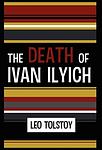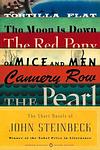The Greatest "Saint Petersburg, Psychological" Books of All Time
Click to learn how this list is calculated.
This list represents a comprehensive and trusted collection of the greatest books. Developed through a specialized algorithm, it brings together 300 'best of' book lists to form a definitive guide to the world's most acclaimed books. For those interested in how these books are chosen, additional details can be found on the rankings page.
Genres
The Psychological genre of books typically explores the inner workings of the human mind and emotions, often delving into complex and sometimes disturbing psychological states. These books may focus on mental illness, trauma, relationships, or personal growth, and often challenge readers to confront their own beliefs and perceptions. Psychological books may be suspenseful, thought-provoking, and emotionally intense, offering readers a deep and often unsettling glimpse into the human psyche.
Countries
Date Range
Reading Statistics
Click the button below to see how many of these books you've read!
Download
If you're interested in downloading this list as a CSV file for use in a spreadsheet application, you can easily do so by clicking the button below. Please note that to ensure a manageable file size and faster download, the CSV will include details for only the first 500 books.
Download-
1. Crime and Punishment by Fyodor Dostoevsky
A young, impoverished former student in Saint Petersburg, Russia, formulates a plan to kill an unscrupulous pawnbroker to redistribute her wealth among the needy. However, after carrying out the act, he is consumed by guilt and paranoia, leading to a psychological battle within himself. As he grapples with his actions, he also navigates complex relationships with a variety of characters, including a virtuous prostitute, his sister, and a relentless detective. The narrative explores themes of morality, redemption, and the psychological impacts of crime.
-
2. The Idiot by Fyodor Dostoevsky
The book follows the story of a kind-hearted and naive protagonist who returns to Russia from a Swiss sanatorium, where he was treated for a severe epileptic condition. Despite his pure intentions, he gets entangled in a web of love, greed, and manipulation, leading to tragic consequences. The novel explores themes of innocence, love, sacrifice, and societal expectations, offering a profound critique of Russian society during the 19th century.
-
3. Oblomov by Ivan Goncharov
The book is a satirical critique of the nobility in 19th century Russia, focusing on the titular character, a lazy and apathetic nobleman who prefers to daydream and live in his own fantasies rather than engage with the real world. His indolence is contrasted with the energetic and ambitious character of his friend who tries to get him involved in societal affairs and business. The protagonist's lethargy and inability to adapt to changing times symbolize the decay and stagnation of the Russian nobility.
-
4. The Death of Ivan Ilyich by Leo Tolstoy
The book is a poignant exploration of mortality and the human condition, focusing on a high-court judge in 19th-century Russia who lives a seemingly successful and conventional life. However, when he is confronted with a terminal illness, he begins to question the meaning and value of his life, leading to an existential crisis and eventual spiritual awakening. Through his struggle, he comes to realize the superficiality of his previous life and the importance of genuine human connection. His story is a profound commentary on the nature of life, death, and the pursuit of happiness.
-
5. Notes from the Underground by Fyodor Dostoevsky
This novel is a profound exploration of the human psyche through the eyes of a bitter and isolated retired civil servant living in St. Petersburg. The protagonist, a self-proclaimed "sick" and "spiteful" man, delves into his past experiences and personal philosophies in a series of rambling and often contradictory monologues. His existential musings touch on themes such as free will, determinism, and the nature of human action, often challenging the prevailing ideologies of his time. The narrative provides a deep and unsettling insight into the darker aspects of human consciousness.
-
6. Resurrection: A Novel by Leo Tolstoy
"Resurrection: A Novel" is a profound exploration of moral responsibility and the possibility of redemption. The story revolves around a nobleman who, in his youth, seduces and abandons a young servant girl. Years later, he encounters her as a prostitute on trial for murder. Overwhelmed by guilt for his role in her downfall, he decides to atone for his sins by dedicating himself to her defense and rehabilitation. The novel grapples with themes of morality, justice, and the human capacity for change.
-
7. Short Novels by Fyodor Dostoevsky
This collection of works by the renowned Russian author delves into the depths of the human psyche, exploring themes of morality, free will, and the existential struggles of individuals in society. The narratives often focus on characters who are grappling with profound internal conflicts, societal pressures, and ethical dilemmas. Through a series of intense, philosophical dialogues and dramatic plot developments, the author examines the nature of good and evil, the possibility of redemption, and the enduring question of what it means to be human. Each novella in the collection serves as a powerful exploration of the complexities of the soul and the human condition.
Reading Statistics
Click the button below to see how many of these books you've read!
Download
If you're interested in downloading this list as a CSV file for use in a spreadsheet application, you can easily do so by clicking the button below. Please note that to ensure a manageable file size and faster download, the CSV will include details for only the first 500 books.
Download





